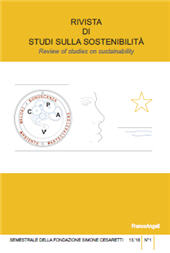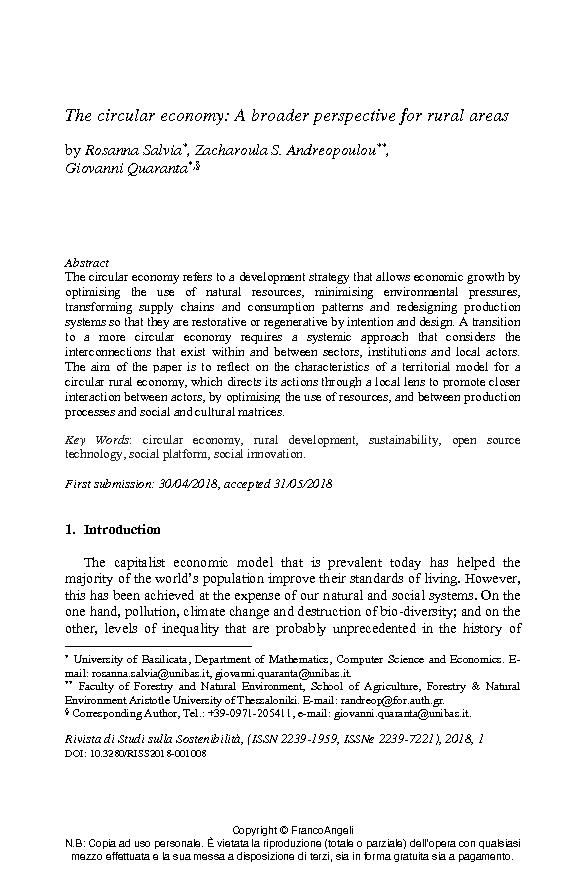The circular economy : a broader perspective for rural areas
87-105 p.
The circular economy refers to a development strategy that allows economic growth by optimising the use of natural resources, minimising environmental pressures, transforming supply chains and consumption patterns and redesigning production systems so that they are restorative or regenerative by intention and design. A transition to a more circular economy requires a systemic approach that considers the interconnections that exist within and between sectors, institutions and local actors. The aim of the paper is to reflect on the characteristics of a territorial model for a circular rural economy, which directs its actions through a local lens to promote closer interaction between actors, by optimising the use of resources, and between production processes and social and cultural matrices. [Publishers' text].
-
Articles from the same issue (available individually)
-
Information
ISSN: 2239-1959
KEYWORDS
- Circular economy, rural development, sustainability, open source technology, social platform, social innovation



